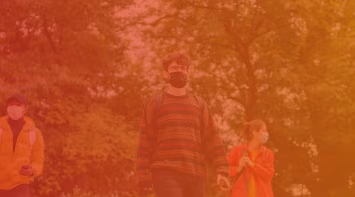It seems undeniable that, even when the coronavirus has long since faded into memory, the world will remain a very different place to the one we all inhabited a mere couple of months ago.
Whether it’s the permanent closure of a favourite café, the dramatic impact on the economy and a greatly reshuffled workforce, the increasing implementation of remote-working technologies or (hopefully) the continued implementation of a home-workout fitness regime, we and the world around us will be permanently changed.
The same goes, of course, in the world of Higher Education. Already we have seen talk of the re-introduction of university caps, so far framed as only a temporary measure but with the potential to reignite an old debate. Equally, with the cancellation of A-level exams and the recent rise of unconditional offers, there is the possibility of real and lasting changes to how students are assessed and offered university places. Beyond that, with the continued closure of IELTS centres, schools and VISA offices around the world, international students face unprecedented barriers in between them and their international study ambitions – and that’s before we even think about the currently closed borders of many destination countries.
As we journey forward into a world of uncertainty where up to the minute data will be our best chance of making accurate predictions and navigating a path through to more stable times, the story being told by the data can shift dramatically in the space of just a couple of weeks.
The impact of the coronavirus epidemic was felt strongly and immediately by students. Initially, the increasing intensity of the coronavirus outbreak and the subsequent measures to try and mitigate it resulted in a dramatic decline in student search traffic, both for key terms and on key sites. We discussed this new and troubling trend in traffic in an article considering the possibility of a “new normal” in student behaviour and the implications of such a future on the Higher Educations sector.
Now, over three weeks into a countrywide lockdown and having had a set of announcements providing some clarity on issues such as student assessment, we are beginning to get a better picture of what the immediate future will look like. The good news, and yes there really is some good news, is that already Domestic student traffic appears to be returning to the “old normal”, at least for now.
We’ll start with Google search trends. In mid-March, we saw the lowest share of key search terms such as “best university” used by students when researching their higher education options. This drop correlated with the escalation of the coronavirus to a pandemic by WHO and a flurry of government announcements, particularly regarding school closures and the cancellation of A-level exams. Overall, key search terms saw a drop of around 25%, enough to produce considerable panic in the sector. However, already, we can see the start of a recovery.
Indeed, if we look at the search term “best university”, which hit its lowest search volume on 18th March when school closures and exam cancellation were announced, from the very next day when the Education Minister provided more information on the decisions and their impact for students, search volume began to creep back up. While searches are, unsurprisingly, yet to reach pre-coronavirus levels, there is a clear upwards trend as students start to turn their attention back to making the best choices for their academic future.

Although students often appear to react negatively to new government announcements, for example, a sharp drop in search volume when the details of how students would be graded were announced on April 3rd, their interest appears to be growing in resilience as interest quickly bounces back and continues its upward trajectory.
A similar story is playing out on IDP’s own sites, Whatuni and Complete University Guide. As you can see, up until the WHO announcement declaring the Coronavirus a pandemic on March 11th, traffic on the two sites in 2020 was either matching or slightly outperforming the same period last year. After the WHO declaration and subsequent announcements regarding school closures and exam cancellation, traffic this year fell off a cliff and ceased to follow the trends of the previous year. Traffic on these sites took a little longer to recover, beginning to pick up a few days after the Education Minister provided further details on the cancellation of exams on 19th March. However, the recovery has been more stable and consistent, already returning to levels matching traffic last year.

The message here is positive. While students are clearly deeply affected by the impact of the coronavirus on their A-levels and Higher Education goals, their interest remains. As students increasingly get used to their new routines and lives in the context of the coronavirus crisis, their recognition of the value of higher education has stayed intact. Essentially, the sector can take heart that, given time, student behaviour will return to normal.
The traffic on Whatuni and Complete University Guide suggests that students are seeking trusted sources of information as they navigate their way through this uncertain future. For institutions, who are facing their own uncertainties, communicating to students clearly and effectively will place them in the strongest position when it comes to attracting site visits and earning the trust of prospective students.
We will continue to publish this data regularly over the coming weeks and months and welcome the input of others from the sector regarding what trends they are seeing and which sources of information are proving the most valuable. Please use the comments box below or contact me or your usual IDP Connect directly.
In the meantime, please do get in touch if you have any further questions. Stay safe and look after yourselves.
You might like...

New IDP Education partnership aims to place Aston University as one of UK’s leading international recruiters
New innovation partnership announcement

Waiting for the MAC review – IDP urges the international education sector to promote UK opportunities
Emerging Futures data demonstrates key drivers for understanding student destination choice.
Higher education sector gathers to celebrate impressive increase in student satisfaction levels across UK
Whatuni Student Choice Awards 2024



